mina
SEPTEMBER 2021
Based in Lisbon, mina creates a safe(r) space for marginalized communities, fueled by LGBTQI+ and feminist values. Their parties allow sexual and intimate experimentation, providing tools and information for doing so safely and with agency. More than a space for parties, mina operates as a community with various clusters of action - community radio, labels, artistic platforms, awareness workshops and festivals.
“One of the big problems is that [in Lisbon] things like queer policymaking, rave culture… are not really considered as cultural… they’re not really respected.”
TOURISTIFICATION & GENTRIFICATION
The financial crisis in 2008 hit Portugal especially hard; rising unemployment and a general decline in the economy led approximately 485,000 people to leave Portugal between 2011 and 2014; almost 200,000 permanently emigrated. Most were aged 30 or under. The economy is slowly recovering, but it’s come at a cost. In Lisbon, it’s blatant that the city is being sold off for tourism, due to pressure from the IMF and the European Union, in order to help cut the country’s debt. Residential properties are being used for Airbnb, and with the near lack of regulation, locals are being priced out of their homes and pushed toward the outskirts of Lisbon.
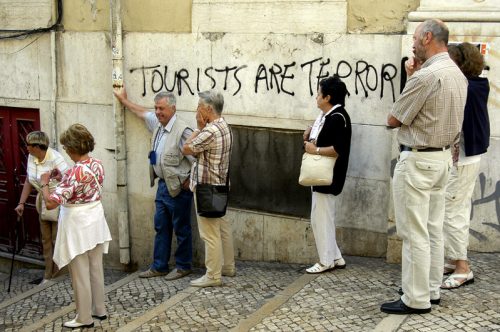
SMALL TOWN MENTALITY
Due to a pervasive small town mentality in Portugal, marginalized communities continue to lack recognition and support. They remain invisible among other policy-making and funding priorities, if not faced with outright discrimination by authorities. Prejudice against LGBTQI+ collectives and the BIPOC community, combined with the decrease of alternative venues due to gentrification, has led to a limited cultural and nightlife scene that excludes these communities. It is increasingly hard for marginalized groups to find venues for their events – spaces where they feel accepted and can be themselves.
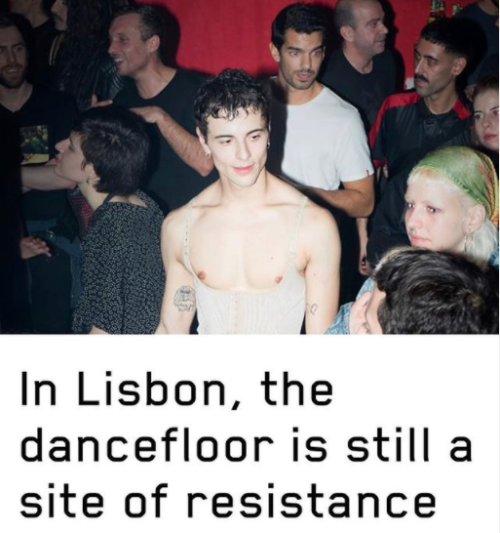
RISE OF ALT-RIGHT POLITICS
Portugal had one of the longest dictatorships in Europe, lasting from 1933 until 1976. Right-wing sentiments from this period remain embedded in much of society, passed down through the generations. With the rise of right-wing populism across Europe, these ideas and beliefs are now being strengthened. Wealth is often glamorized among the youth in a poor country like Portugal, rather than community and solidarity. This is leading to an overinflated sense of individualism and less open attitudes in the younger generations, which are visible on social media and in the nightlife scene.

“We’ve been endlessly looking for a venue that can host an affordable party with particular features such as an inclusive door policy invested in keeping our crowd safe, darkrooms, smoke and strobes that allow us to obfuscate, rub and aggregate our naked and sweaty bodies far from the prejudiced gaze.”
HISTORY
mina’s founders met through the local community radio station, Rádio Quântica, when they were invited to participate in an interview. During the interview, the group realized they had the same ideals and saw the need for significant change in Lisbon’s club scene, from the type of music played to an inclusive environment in the clubs.
The first parties mina held were in a former sex club in the city center, but the venue was sold after a year due to the rapid increase in gentrification. Still, there was a desire from the community for more parties and mina wanted to continue, creating bigger and more meaningful events. From then on they moved from venue to venue, often struggling to find suitable locations. Many venue owners were not willing to comply with the principles of inclusivity and diversity that mina endorses for its events.
USE OF THE SPACE
The aim of mina’s events is to offer a space for radical togetherness and acceptance and for musical experimentation. The group strongly adheres to their principles when organizing events, even if this goes against social norms and (arguably unjust) laws. How mina uses a space depends on the venue and type of event, which could be parties and concerts, but also talks, workshops, festivals, radio shows or showcases.
The parties are the core of mina’s activities, running longer than is allowed by law and dismissing the mandatory gender division and policing of bathrooms. Awareness teams and harm reduction teams that allow for the safe consumption of substances are present at mina’s events, rather than the ineffective policy of blind prohibition. No hired security are inside the venues and mina has their own door team, welcoming and selecting the guests. Rather than operating for profit, mina is driven by the right for all parts of society to simply have a good time and to feel safe while doing so.
COMMUNITY
mina is open to all marginalized communities, with a special focus on the LGBTQI+ and BIPOC communities that are aligned with queer feminist decolonial values and practices. Agency, pleasure and peer-to-peer care are highly valued. As a whole, mina operates as a space where people gather to seek radical togetherness and acceptance. They have a large core community of people who infuse the events with their open-minded values and attitudes.
CATALYST
When mina was founded there weren’t many possibilities for these marginalized communities to meet, apart from a handful of underground spaces and collectives. mina came to solidify and pluralize the club scene by gathering people and creating excitement, resulting in the birth of subsequent projects and collectives.
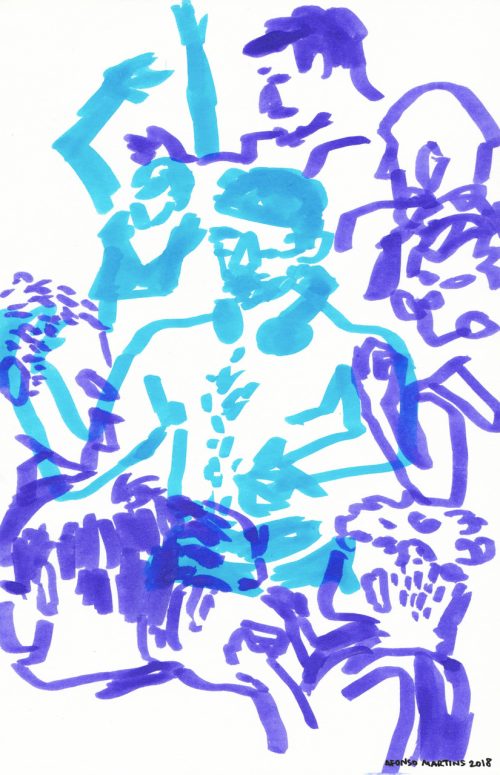
PIONEER ROLE
mina has radically changed the scene by offering an unprecedented level of freedom and experimentation that was not present in Lisbon’s nightlife, electronic music scene or LGBTI+ scene. Many queer and trans people and BIPOC found in mina kinship and artistic ties that didn’t exist before. It was a novel experience for many people who didn’t identify with or didn’t have access to the mainstream clubbing scene.
(Because mina doesn’t allow photos during their parties, they invite artists to give an impression of the vibe during the events.)
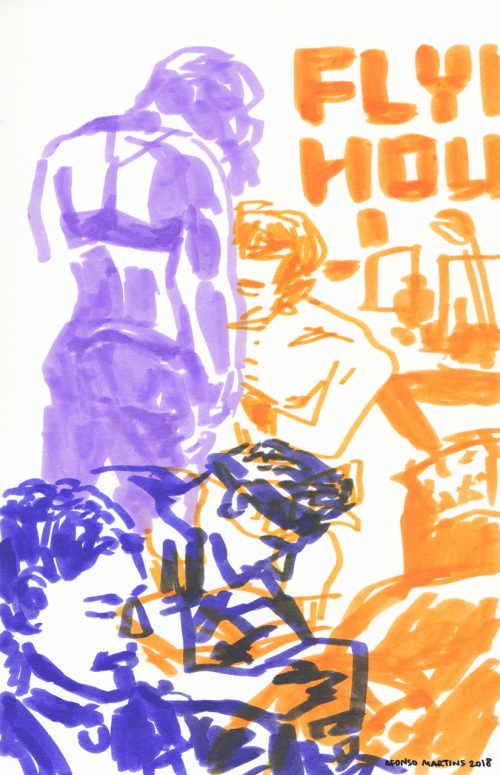

“When talking to venue owners we don’t really underplay what happens in our parties, because we want to protect the kind of experience that we managed to provide from the very beginning.”
STRONG PRINCIPLES
mina communicates their principles to venue owners when organizing events. This includes a door policy managed by a team mostly composed of queer trans and femme people; no hired security inside the club/venue; an allocated guest list for people struggling financially; and an awareness team sensitive to handling situations of substance abuse or harassment. Working mostly with offsite locations, an RSVP system communicating mina’s values ensures that their guests understand and comply with nonhomophobic and nonracist principles.
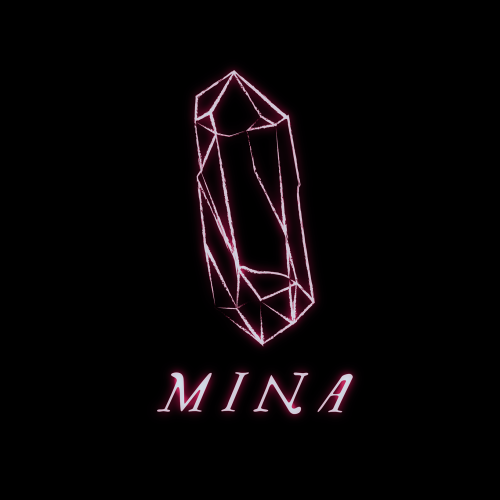
COMMUNITY BUILDING
mina has managed to build a strong community for the LGBTI+ queer scene in Lisbon, giving voice to the narratives and lived experiences of these communities through workshops, discussions and online mutual support groups. With a strong focus on musical experimentation, which has grown over the years to include music beyond techno, mina has hosted live acts from an array of musical genres, as well as other types of artistic expression from the fringes.
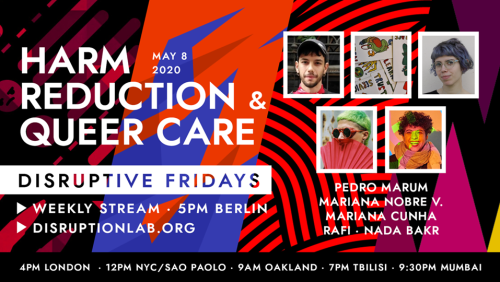
COLLABORATION
Despite often being overlooked by the local cis, straight male dominated mainstream scene in Lisbon, mina has managed to connect with a wider network of queer feminist parties that support each other and exchange knowledge. This gives artists who would otherwise have no place to perform the chance to travel and expand their opportunities.
mina has collaborated with anti-eviction movements, harm reduction NGOs, queer housing projects, and queer raves across Portugal and around the world, such as Mamba Negra (Brazil), In Training (USA), Room 4 Resistance, Lecken and Whole (Germany). They’ve also partnered with Resident Advisor and streamed events for Boiler Room.
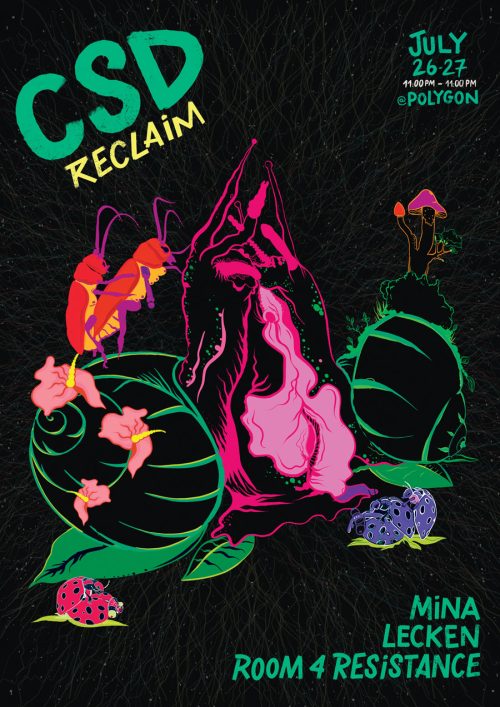
FUNDRAISING
Until recently, mina hasn’t had a regular space to hold events, often forced to rent expensive venues run by people who don’t respect or understand mina’s work or the communities they serve. Unable to organize any parties during the COVID-19 pandemic, mina invested their time in figuring out how to secure a more permanent space and expand their parties once lockdown restrictions are lifted. After two years of searching, they found two spaces near Martim Moniz and Penha de França.
The first space is the community center, Manta, which features a radio station and music studio, as well as space for artist residencies, meetings and small events with access to a kitchen and bar. In order to continue building the space, mina has launched a Go Fund Me campaign to raise 10,000 EUR. They were also hoping to be able to secure the larger space for events, rehearsals, etc., but with COVID raging in Lisbon, they’ve had to put this on hold.
During the COVID-19 pandemic, mina has also been spending much of their time working to find additional ways to help the community financially, and also to provide cultural and social services. These initiatives include Ravelength, an online harm reduction platform for the LGBTQI+ community; and sharing grants between queer and BIPOC communities in need.
Boiler Room in Isolation was held during the pandemic, and helped mina raise money for a Black Lives Matter project in the US. They also donated 50% of the artistic fees to artists from the communities they serve in Lisbon.

MEDIA STRATEGY
Since mina was founded in 2017, the group has been very vocal on social media about their work and the challenges they have faced. Firstly, so people would know why they were moving from venue to venue. This raised increasing attention from international media, leading to the collaboration with Resident Advisor and streaming events for Boiler Room.
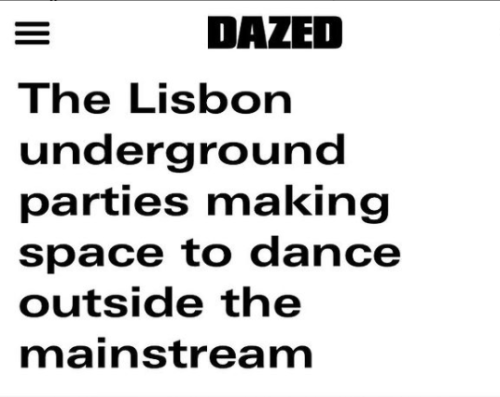







“The radical difference between a party and a rave lies in the sense of urgency that is in the genesis of the rave.”